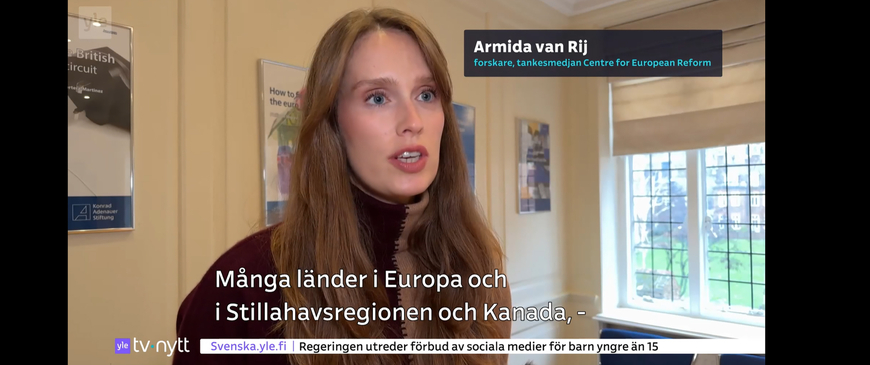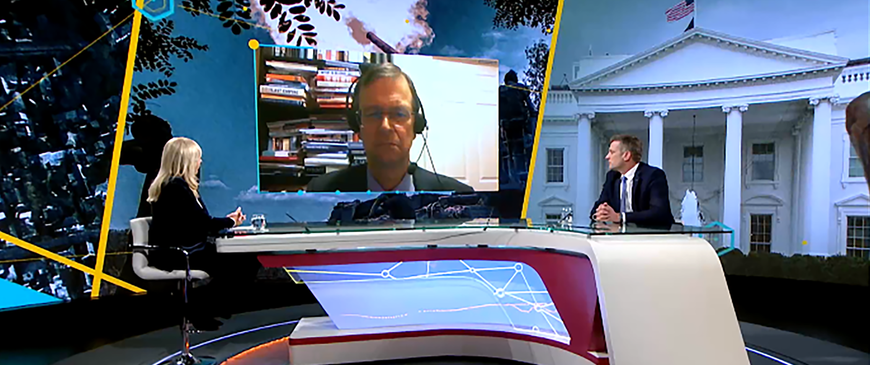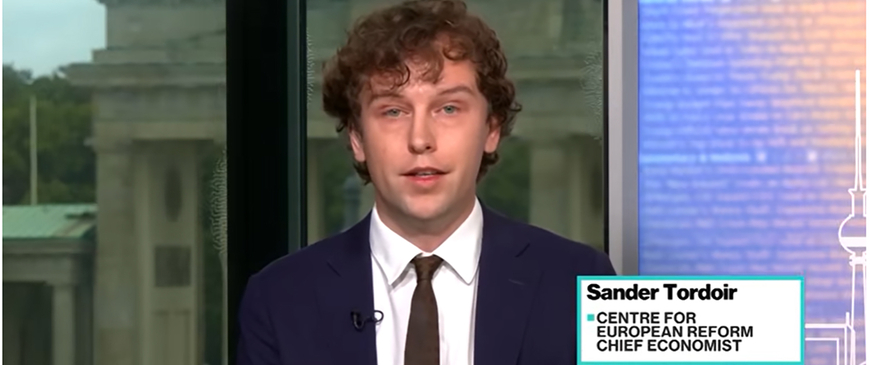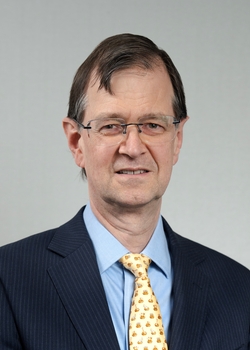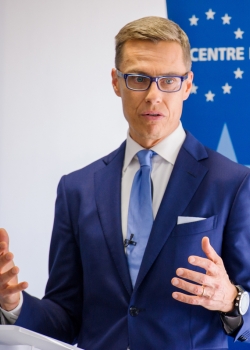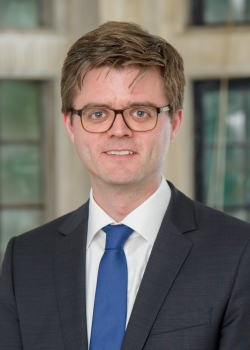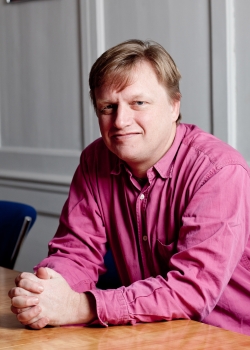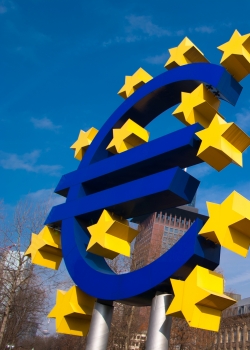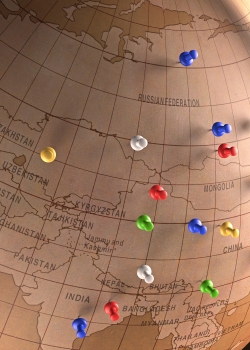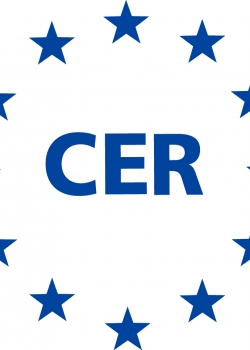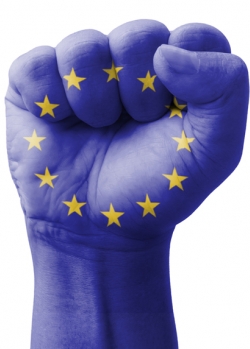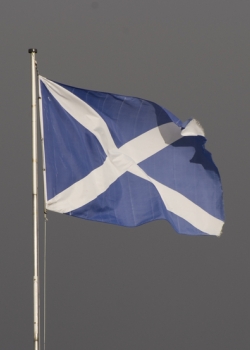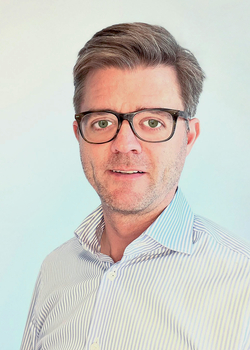Press
Pașaport diplomatic - Drumul mătăsii
11 October 2014
Digi 24
România este din nou în centrul atenției mondiale pentru un proiect în care sunt implicate foarte multe țări de pe trei continente. Ian Bond speaks in English on the New Silk Road (15:20).
Better in than out? The prospects for and implications of "Brexit"
10 October 2014
Brookings
The United Kingdom has always had an uneasy relationship with the European Union. The current UK government has promised the British people that they will get a chance in 2017 to decide whether they should finally break away from the EU entirely. British critics see the European Union as an undemocratic imposition of foreign rules on an unwilling British public, while British proponents see the EU as an important source of British prosperity and a magnifier of British influence in the world.
Finnish Prime Minister calls for ‘more Europe’ on energy and climate policy
09 October 2014
British Influence
Yesterday the CER hosted a speech by Finnish Prime Minister Alexander Stubb on “Smart and cost-effective energy and climate policy”. It was clear from his remarks and the tone of delivery that he strongly wants the UK to remain in the EU.
Eurozone core must focus on investment: New EU growth czar
09 October 2014
Business Insider
German investment has been falling steadily over the past two decades, from around 21 per cent of its GDP in the late 1990s to just above 17 per cent now, according to Christian Odendahl of the CER.
The EU wouldn’t be better off without the UK, but won’t pay any price to keep it
09 October 2014
Europe's world
Signposts from the European elections: A cross-section of views on the choices and priorities thrown up by the mid-year European election results
What does Scotland mean for other independence bids?
09 October 2014
World Economic Forum Blog
"The concept of the unitary state is going to become much more difficult except for a very small country," said Stephen Tindale, associate fellow at the CER. "It does augur increased pressure on central governments to change the (political) relationship" with regions.
Germany’s insistence on austerity meets with revolt in the eurozone
07 October 2014
The New York Times
"After going along with the damaging strategy of austerity in the hopes that Germany would eventually moderate its position, countries are now saying, ‘Enough is enough.'" said Simon Tilford, the deputy director of the Centre for European Reform in London.
Analist britanic: "Sunt sceptic că Noul Drum al Mătăsii are sens din punct de vedere comercial" (interview in Romanian)
07 October 2014
The Epoch Times
Ian Bond a explicat într-un amplu interviu acordat Epoch Times care sunt barierele în calea Noului Drum al Mătăsii, de ce Rusia şi China au interese divergente în Asia Centrală şi ce vrea să facă Putin în continuare în Ucraina.
Le jugement sévère de la City sur l’état de la France
04 October 2014
Le Monde
Simon Tilford, du CER, a écrit une longue note relativisant les problèmes économiques de la France."Ce n'est pas un pays sclérosé, sinon comment expliquer que les investissements étrangers continuent à affluer? Mais si le pays déçoit tant, c'est que les attentes envers ce pays sont très fortes."
Ponta, la Bucharest Forum: Poziţia naturală a României, de frontieră estică a UE şi NATO, e o uriaşă oportunitate pe care putem să o folosim sau să o ratăm
02 October 2014
economie
Uniunea Eurasiatică a lui Vladimir Puţin este închisă prin bariere comerciale.
Hollande warns France of tough spending cuts
30 September 2014
Financial Times
"I have never known Berlin more annoyed with France," says Charles Grant, director of the CER."Seen from Berlin, Hollande has wasted two years achieving virtually no structural reform and failing to rein in spending."
Companies warn Tories they risk losing pro-business reputation
30 September 2014
Financial Times
Charles Grant, director of the CER, told the FT the issue was a serious problem for his group. "There is a danger that by threatening to take Britain out of Europe that relationship is about to come under unprecedented strain," he said.
Tories aim to curb EU freedom of movement in migration crackdown
30 September 2014
The Huffington Post
"We will be wanting to make certain at a European as well as a national level that the right of people to work or retire around Europe does not become a right to travel around in order to collect social security benefits or commit crime." He was speaking at a fringe event hosted by the CER/BfB/BNE.
We can bring change and reform to the EU — abandoning it is not the answer
25 September 2014
The Independent
We urge the UK’s political parties to raise their game in leading, not leaving, Europe.
Big business steals the show at New York climate talks
24 September 2014
New Scientist
The focus for climate diplomacy should be climate finance, argues Stephen Tindale, former director of Greenpeace UK, and author of a report for the CER, a London-based think tank.
Мистецтво (не) розійтися/The art of (not) breaking a relationship (with English translation)
23 September 2014
The Day
Які уроки треба винести Європі з шотландського референдуму/What lessons should Europe draw from the Scottish referendum?
Even the ECB thinks Germany needs to start spending more
22 September 2014
The Washington Post
Take a look at the chart below from Christian Odendahl, the chief economist at the CER. Once you account for depreciation, Germany's public investment on construction and equipment has actually been negative the past decade.
French and German visions for Europe to clash in Berlin
21 September 2014
Reuters
"Behind closed doors, while Germany will certainly push France on reform and [budget] consolidation, France will be given more time and flexibility," said Christian Odendahl, chief economist at the CER.
Could the Ryder Cup offer a sporting chance for European unity?
21 September 2014
The Guardian
But sport, said Stephen Tindale of the CER, "is respectable tribalism" – and tribalism can prove a powerful and effective motor. The kind of people who oppose further European integration often do so, Tindale argues, on the grounds that there is no European "polis", or body of citizens.

